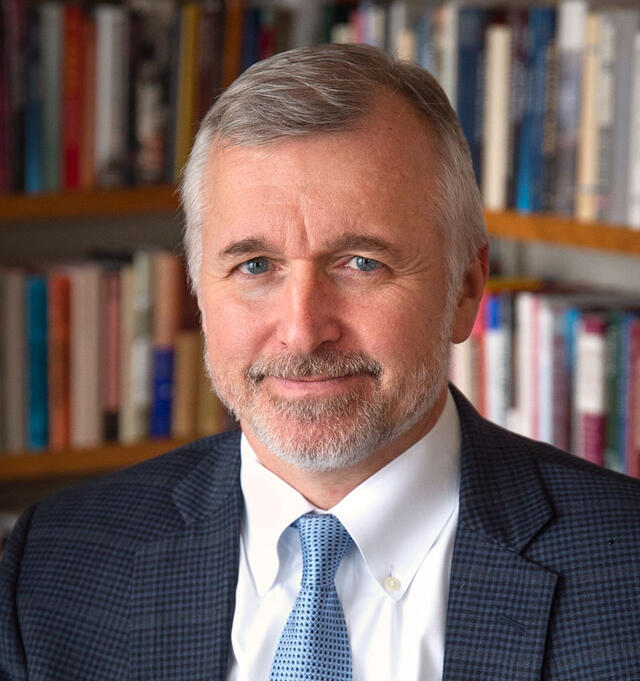
Thomas Christensen Brings China and the World Program to SIPA

Thomas Christensen’s office on the 13th floor of the International Affairs Building is dominated by windows. It’s from here, looking over Morningside Heights, that one of SIPA’s newest faculty members will oversee the International Workshop on China and the World this February 27 and 28.
Christensen is first and foremost a scholar of international relations, and China in particular, who has taught at MIT, Cornell, and Princeton. From mid-2006 to mid-2008 he served as deputy assistant secretary of state for East Asian and Pacific affairs. His latest book, The China Challenge: Shaping the Choices of a Rising Power, was an editors’ choice at the New York Times Book Review.
Now Christensen is back at Columbia, where he got his PhD; his advisers, Jack Snyder, Robert Jervis, and Andrew Nathan are still faculty members. Christensen is also a director of the China and the World Program (CWP), which works to integrate the study of Chinese foreign relations into the field of international affairs by bringing together new and established scholars.
Along with his co-director Alastair Iain Johnston — a Harvard professor who will give opening remarks at this year’s conference — Christensen started CWP in 2004. At the time, they were struck by how many PhDs studying China were leaving academia for think tanks and consulting. Just when China was growing in influence and importance, they thought, a shortage of scholars able to teach the next generation of global citizens seemed imminent.
Christensen and Johnston started the program to help postdoctoral scholars in their own field of international relations and China stay in academia. Drawing on financial support from organizations like the Carnegie Corporation and MacArthur Foundation, the program awards fellowships to encourage research that speaks to international relations experts, China specialists, and the community of policy-oriented scholars and policy makers. By supporting dissertation work to help candidates secure better teaching jobs and eventually tenured faculty positions, CWP also helps the young post-docs secure long-term positions in the classroom.
CWP typically hosts two to four fellows a year, and has successfully helped many academics build their careers: The great majority of more than 40 current and past fellows enjoy tenure-track or tenured positions at colleges and universities. The fellowship network has also created a community for fellows to lean on during and after their fellowship. There are annual workshops to discuss their work, produce better content for publication, and help start careers on a strong note.
When Christensen left Princeton to join the SIPA faculty In July 2018, the China and the World Program relocated with him. (CWP will announce its first class of China and the World Fellows since the move later this semester.)
Columbia’s key advantage, Christensen says, is its professional schools, which offer “diverse expertise to tackle a range of real-world problems in which China is an increasingly important player.”
One of those problems, according to Christensen, is China’s effect on climate change. As one example, Christensen cites David Sandalow, the inaugural fellow at SIPA’s Center on Global Energy Policy and co-director of the School’s Energy and Environment concentration, and his vital work on topics like the Belt and Road Initiative and climate change. Now the two men share a campus.
In discussing his work, Christensen commented on some of the overarching challenges of U.S.-Chinese relations. Since the financial crisis of 2008, he said, “China has become more assertive abroad and more state-oriented at home in a way that is deleterious to improvements in U.S.-China economic and political relations.”
At the same time, he said, “the U.S. in recent years has become more protectionist and much less enthusiastic about international institutions that foster international economic integration and political cooperation.”
— Claire Teitelman MPA ’19
Read more about the China and the World Program.